Get a software engineering job at a hackathon?
Introduction
Hey! Quickly about me, my name is Damir; I’m a Computer Science undergraduate at the University of Illinois Springfield, set to graduate in Spring 2023.
I have always been passionate about technology and programming, which led me to start attending hackathons in January 2021. To date, I have participated in numerous events and was named MLH Top 50. In this post, I’ll be sharing my experience of how participating in a hackathon helped me land a job as a Part-Time Software Engineering Intern at John Deere.
Too long; didn’t read
Before you spend any more time reading this, here is tl;dr
I participated in a hackathon at the University of Iowa, sponsored by John Deere and other companies. My team and I won second place for building an AI system to prioritize 911 calls. The day after the hackathon, a hiring manager from John Deere reached out to me for an interview. The process took less than two weeks and I landed the job.
The takeaway: please consider coming out to hackathons and other events where you can network if you are looking to build a portfolio of projects and get a job.
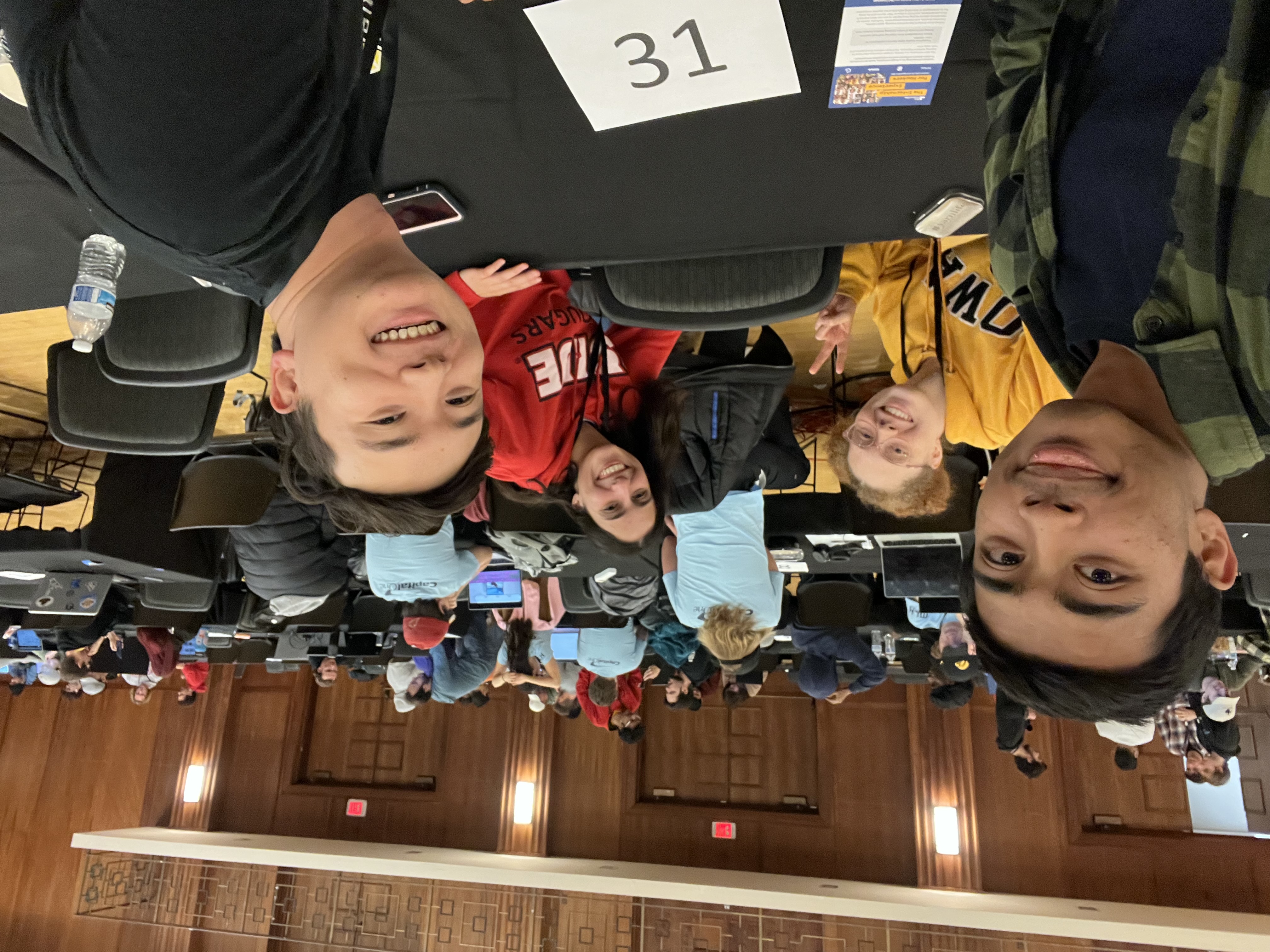
from left to right: Danial, Francesca, Geo, and me
Table of contents
Today’s market
In today’s competitive job market, it’s important to think outside the box when it comes to finding opportunities and standing out from other candidates. For me, that meant attending hackathons and using my skills in building apps to impress potential employers.
Applying to jobs through company websites has never been effective for me. It takes a lot of time to fill out job applications and doesn’t yield many results. With companies like Meta, Amazon and Twitter laying off thousands of employees in 2022, it’s especially hard to enter the job market with zero years of experience.
What is a hackathon?
A hackathon is an event where coders, designers, and other tech enthusiasts come together to collaborate on software or hardware projects. Hackathons typically last for 24-48 hours and provide participants with the opportunity to work on a project in a team and showcase their solutions for specific areas, such as ecology or agriculture.
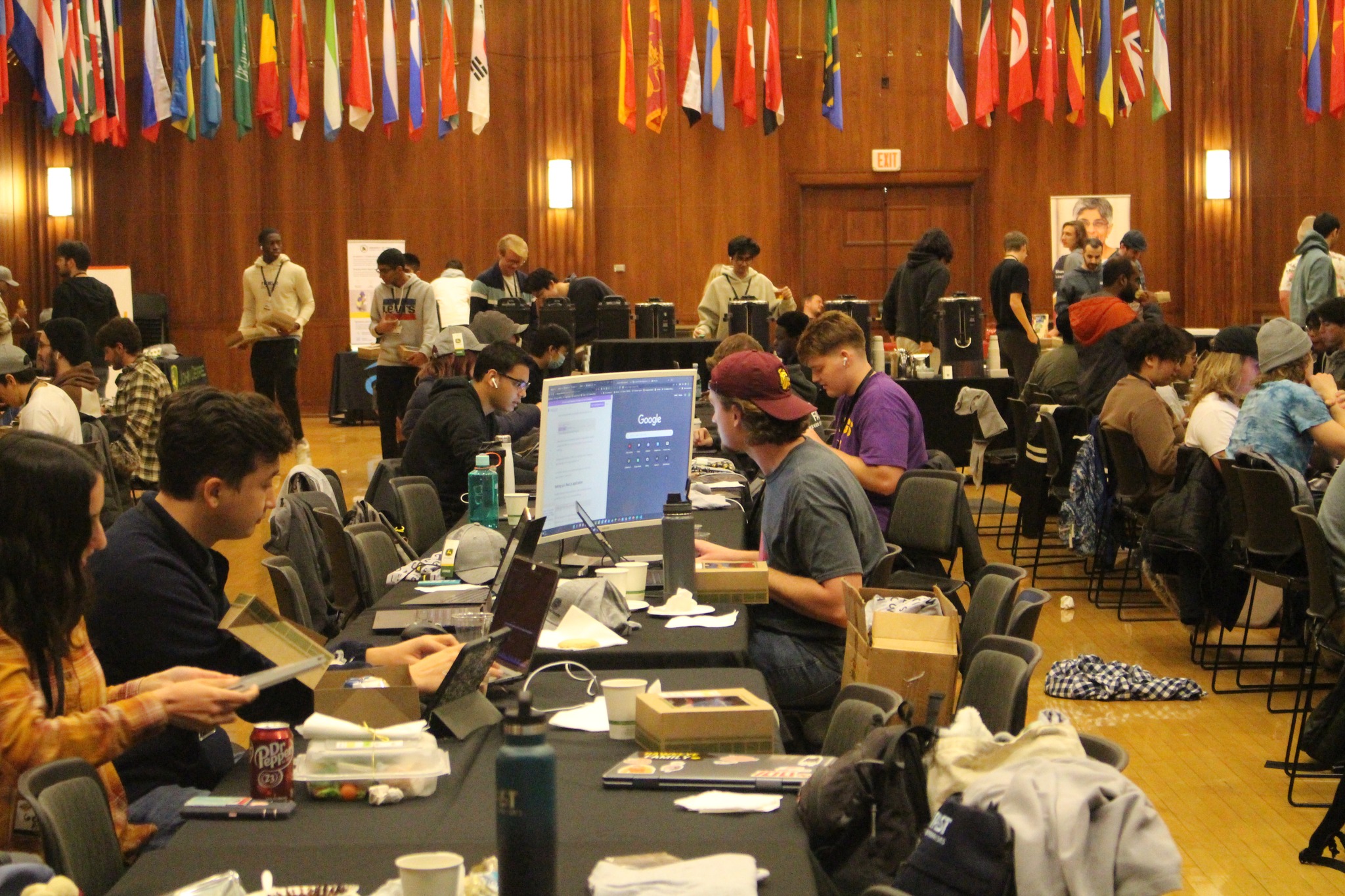
room full of people hacking away! next time, I’m bringing a monitor too
Where to find hackathons?
Major League Hacking is the official student hackathon league, hosting events every other weekend, both in-person and online. You can find their 2023 Season events here. They sponsor events such as the one I attended.
Another way to find hackathons is through DevPost where new events are announced daily. And don’t forget to check with your local universities if they have their annual hackathons that don’t get advertised properly!
What to do at a hackathon?
When you attend a hackathon, it’s important to have two main goals:
- Building an amazing project that solves an issue and wins a prize
- Networking with everyone and making connections
The order of their importance depends on your interests, but I would advise you to find a balance between the two. If you’re attending a hackathon for a job, you want to impress people you meet there both technically and personally.
How to network?
To make the most of your time at a hackathon, here are four things to keep in mind:
Meet sponsors
Before hacking begins, companies that sponsor hackathons in search of talent and promotion of their company will have a table set up. Take advantage of this opportunity to talk to representatives from these companies and learn more about their work. Make sure to have a copy of your resume and portfolio on hand to give to them.
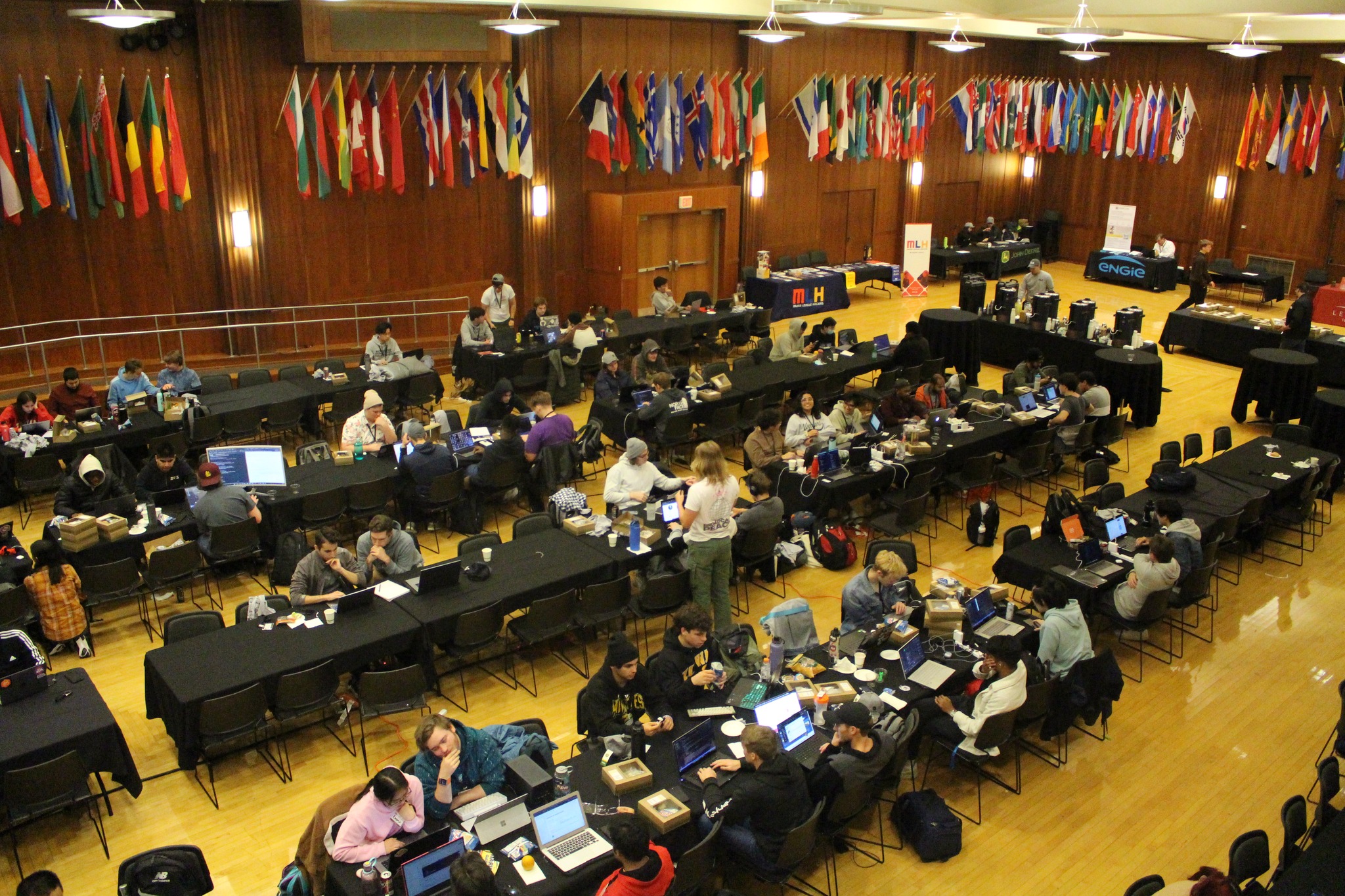
you can see sponsor tables in the upper right corner: MLH, John Deere Engie, and Leepfrog
Some pointers on what you can discuss with the sponsors:
- Ask them their names and what they do at the companies they represent
- Seek their opinions on a project idea you have for the hackathon
Meet teammates
Participating in a hackathon is a great opportunity to meet other like-minded individuals who share your passion for technology. Take the time to get to know your teammates and learn about their skills and experience. Not only will you have the opportunity to work with them on a project, but they could also become valuable connections in your professional network.
Keep in mind that people can come from different backgrounds, both tech and culture-wise. Make sure to keep everything friendly and enjoy the time instead of creating conflicts!
Work and troubleshoot
Once the hackathon begins, it’s time to focus on building your project. Work closely with your teammates to come up with a solution for the challenge at hand. Be prepared to troubleshoot and problem-solve as you work. Remember that the goal is to create something functional and impressive, so don’t be afraid to take risks and think outside the box.
But also keep in mind that your solution doesn’t need to be perfect! Nobody is expecting an industry-grade project, and as long as you put in the effort, your project will count.
Learn from others
Hackathons are a great opportunity to learn from others in the tech community. Take advantage of the opportunity to observe other teams and learn from their approaches and solutions. Attend workshops and talks to learn new skills and techniques. Make sure to take notes and ask questions.
For us, there was one workshop to attend: From Zero to Hero - Developing and Running a Service in the Cloud by John Deere.
We covered things like building an Express app, setting up CI/CD with GitHub Actions, and deploying with Terraform.
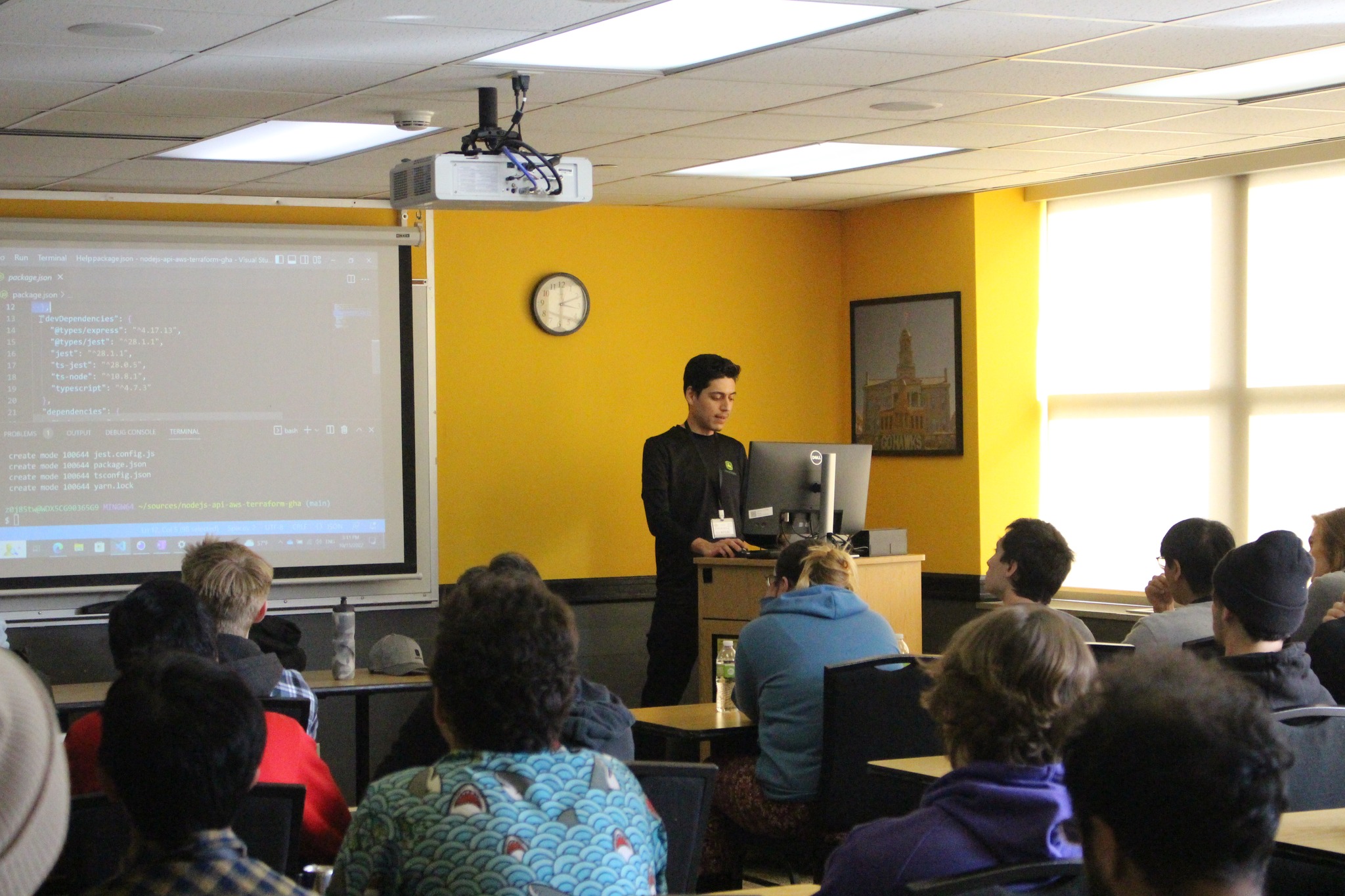
Jonathan from John Deere told us about a deploy-on-push pipeline with GitHub Actions and Terraform
Jonathan kept trying to interact with the class through questions, such as “What is CI/CD?” or “Where can we deploy a service?”, but it was a tough audience.
I was the only one answering the questions, some of my answers were correct while others were not so much (ugh)! If you’re in a situation like that, please speak up and try your best to answer. There is absolutely no shame in being wrong and the speaker will appreciate some engagement from the audience.
After the hackathon
If you are interested in the interview process with John Deere, here is a gist of it:
There were two interviews, a quick behavioral with the manager, and a two-hour behavioral + technical on-site with the team.
The first interview was a 30-minute meeting with the hiring manager, where he told me about the job, his teams, and what the process will look like. I got to tell him about me and ask more about the position.
The second interview consisted of two parts: one hour for the behavioral portion where they asked me about general categories (collaboration, growth mindset, passion for tech, etc.).
- The notable thing that I loved about them is that they made it clear why the question was being asked of me, such as “we are trying to figure out if you are a good teammate”
- Another cool thing is that they gave me tips, such as try not to say “we” every time I explained the solution, instead of making it clear that it was “I” who did something
The second hour was dedicated to one Git challenge and one TDD (Test Driven Development) challenge. With the Git challenge, I had to show that I know how to create branches and push commits.
My favorite part was the Test-Driven Development portion. I was given pre-written Java unit tests and I needed to write code that would make the tests pass. It was amazing because the thing was automated with the infamous Hackerrank (yeah, Hackerrank has some actual problems instead of “invert the binary tree” nonsense).
I got the informal job offer two days later and got things in writing the next week. It was the shortest time I have ever gotten a job; only took 10 days since the first message from the hiring manager.
Conclusion
Participating in a hackathon is an excellent way to build a portfolio of projects, network with other professionals, and showcase your skills to potential employers.
It’s a great opportunity to think outside the box and stand out from other candidates in today’s competitive job market.
I didn’t know this hackathon would turn out like that for me because I didn’t come to it to work specifically for John Deere. There is a lot of luck involved when it comes to job searching, but you must put yourself in a position that will increase your chances.
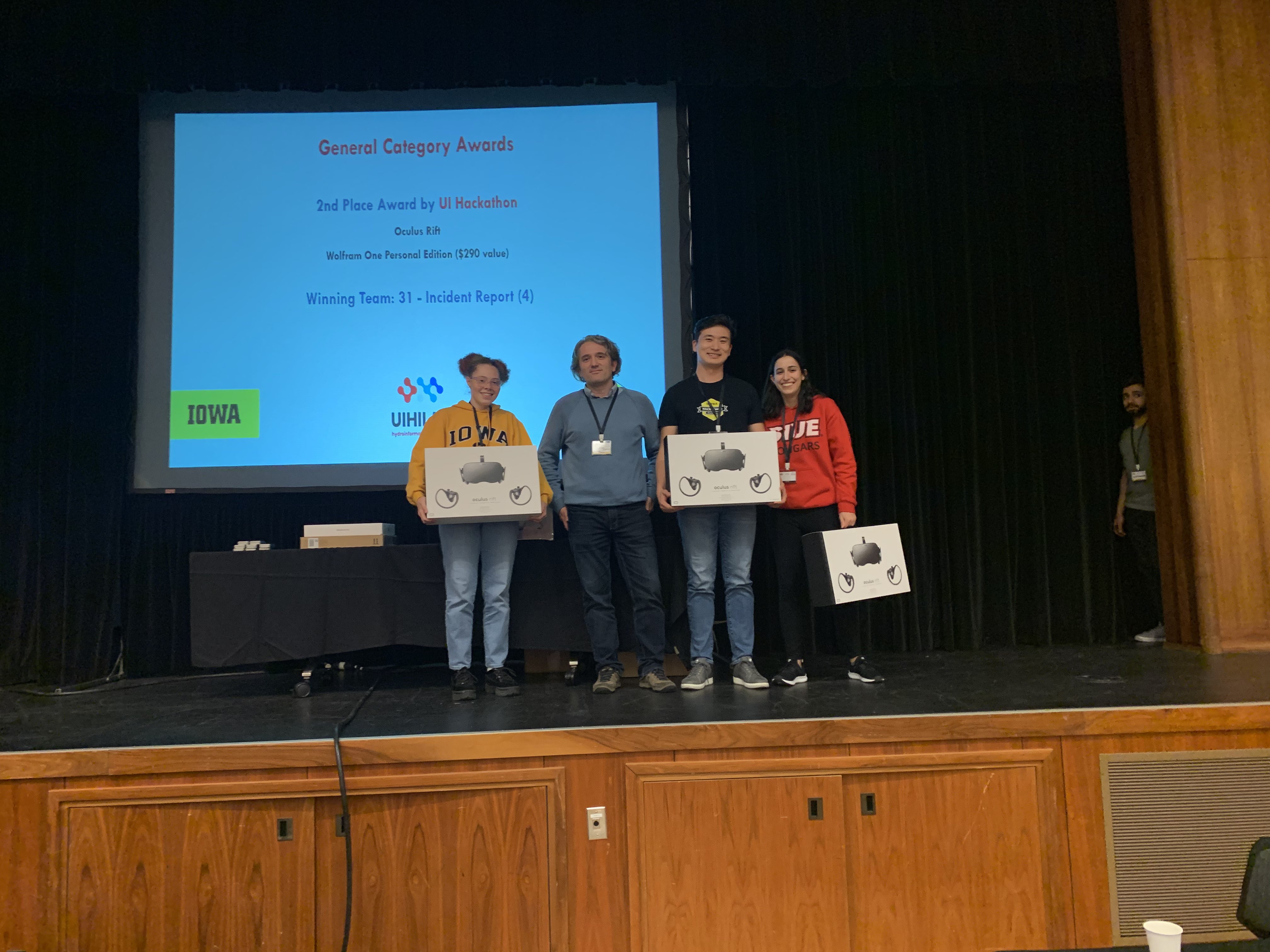
our team won the 2nd-place award
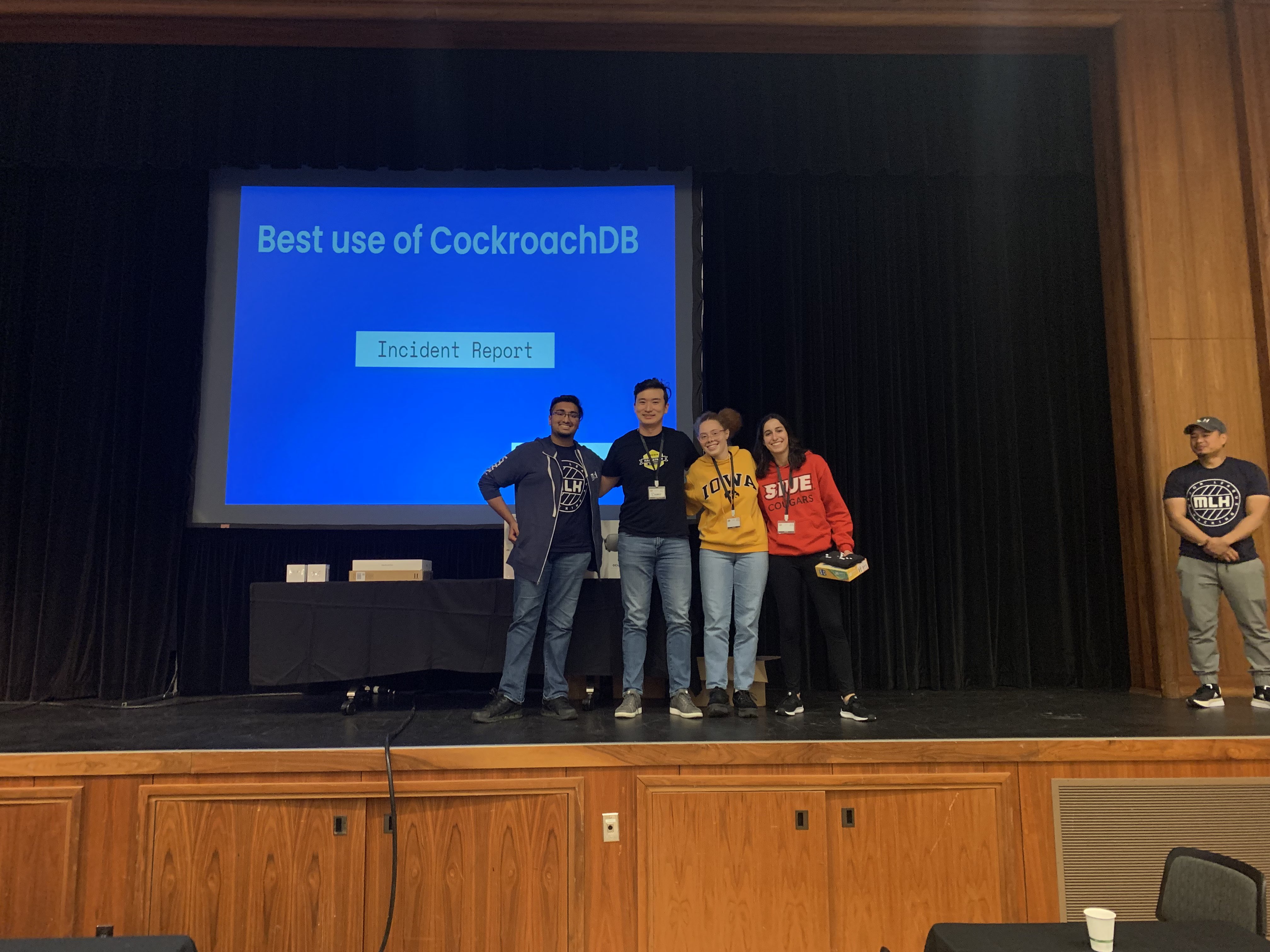
and the CockroachDB category prize
Read more
If you’re interested in learning more about hackathons and how to make the most of them, check out these resources: